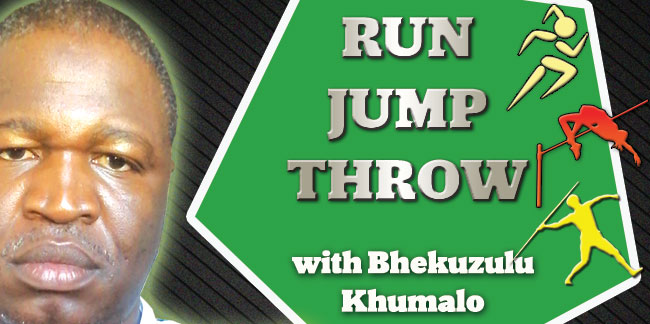
HOW MANY of us do support our children when they choose to be sports persons?
Is it really necessary for a parent to be there at training, competition and all other activities? I have been to countries where for every activity that the child does the parent is present.
Many athletes have the feeling that their parents do not understand their sporting roles and most parents always feel that their child’s role is larger than the athlete knows it to be.
This situation often turns into frustration and second-guessing — and frequently puts the athlete in the middle between coach and parent.
This is a position where the athlete can only lose.
If a parent feels the need to talk to the coach about a problem, he or she should allow the coach to choose an appropriate time and place.
With regard to such problems, some concerns are appropriate, while others are not.
Appropriate concerns to discuss with a child’s coach are: Mental and physical treatment of a child, ways to help the child improve and concerns about the child’s behaviour.
- Chamisa under fire over US$120K donation
- Mavhunga puts DeMbare into Chibuku quarterfinals
- Pension funds bet on Cabora Bassa oilfields
- Councils defy govt fire tender directive
Keep Reading
Inappropriate areas of concern that parents should not discuss with their child’s coaches include: Playing time, team strategy or play calling and other team members.
The dilemma for most adults is that it is easy for them to see solutions in athletic situations and too difficult for adults to let their children find their own solutions.
The problem with parents that have not released their kids to sport are:
Continuing to live his/her personal athletic dream through his/her child, taking credit when the child has done well, trying to solve all his/her child’s athletic-related problems, trying to continue to coach his/her child when the child probably knows more about the game than the parent does.
In such a situation an athlete ends up avoiding parents after the game or being embarrassed about parents involvement or even focused on his/her parents in the stands for approval or out of fear, not the game.
The single most important contribution a parent can make during a competition is to model appropriate behaviour.
What parents need to model more than anything is poise and confidence!
If parents expect their children to react to the ups and downs involved in a game with poise, then they must model it.
If an athlete looked at his/her parents during the competition, would he/she draw confidence, assurance, and poise from what he/she saw?
The second responsibility athletes say that they need their parents to fulfil is to focus on the competition.
This focus helps adults not only get attention off their individual child, but also off all the things that are not in parents’ control (ie the results, the officials, the opponents, coaching and competition conditions).
Thirdly, athletes need only one instructional voice offering advice during the competition — the coach’s voice.
There are only four roles during a game: Spectator, competitor, official and coach. Choose only one of these roles.
The closer the parents are in proximity, the more difficult it is to watch and keep everything in perspective.
Judgment is involved in every sport, but not nearly as much in an objective sport, like track and field.
It is very difficult for parents to be objective. Coaches, on the other hand, can be objective.
Athletes indicate that they love to have parents at competitions when they act appropriately.
If they cannot adhere to reasonable standards of behaviour concerning modelling, poise, and confidence many athletes state that all factors considered, they would rather have their parents stay home.
When it comes to recalling their least-enjoyable memory, many athletes will name “after the game” and often specifically “after the game with my parents”.
This situation is when the most confidence cutting, confrontation and confusion occurs for the athlete.
Unfortunately, some youth athletes do not want to go home after a game because they do not want to face the questioning or criticism.
What they need most at these times is not another coach, but a parent (“just be my dad, be my mom”).
The more competitive an athlete is, the more competitive the sport, the more time and space an athlete needs.
Parents should leave their children alone until they are receptive to interaction with them.
When they do become receptive, parents should give them quiet understanding, be a reflective listener and bring them back to the bigger perspective.
When parents stop and analyse the athletic experience for their children, the reasons they want their child to play sports involve providing an opportunity to develop physically and emotionally and to enjoy themselves.
The side benefit of sports is that children are given a good opportunity to learn how to work and get along with others.
They learn to take risks in a public arena and survive, learn to set and achieve goals by developing positive work habits, learn how to succeed and fail with dignity and to develop friendships that can last a lifetime.
Over and above the moral and technical support the parent provides for the athlete’s school, nutrition, health, equipment, clothing and many other needs.
Hence parents feel they have a full say in all aspects of the child’s life.










